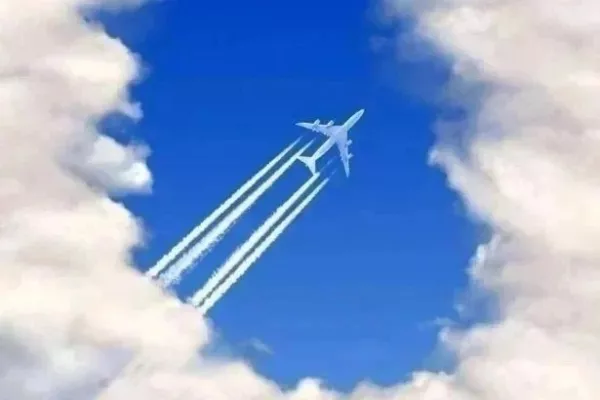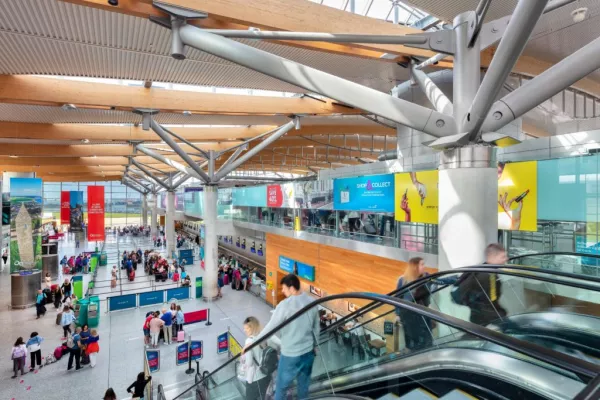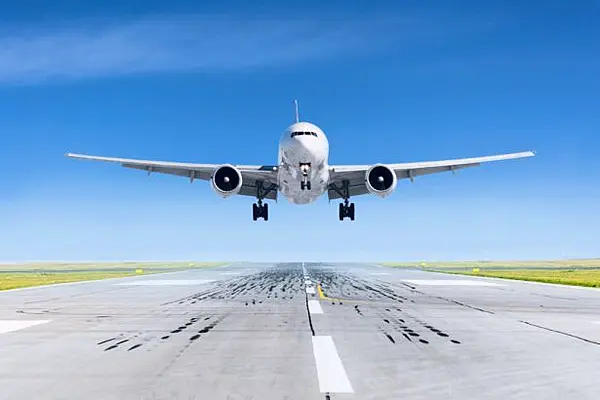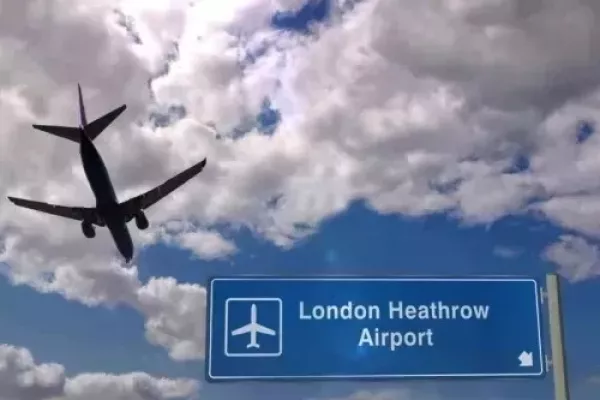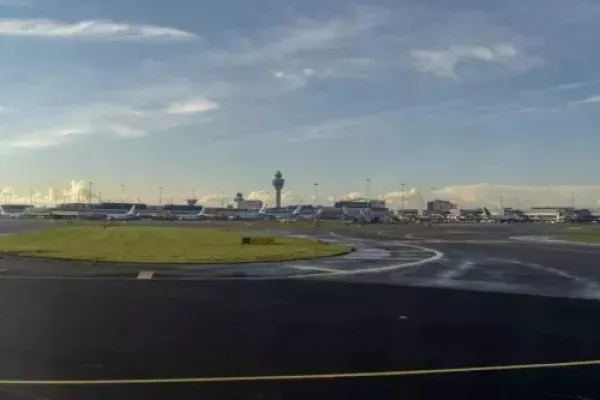US carriers have said travel that demand has roared back after a blip caused by the Omicron coronavirus variant and would remain strong enough to help them offset a run-up in fuel costs with higher fares.
Atlanta-based Delta Air Lines Inc DAL.N said that it was seeing an "unparalleled" increase in demand, resulting in the highest ticket sales in the company's history last week.
"We've not seen a stronger demand...in my career," chief executive Ed Bastian said.
Rivals United Airlines Holdings UAL.O and American Airlines AAL.O also said that the demand is higher than it has ever been. In an encouraging sign for the industry, United said business traffic is rebounding more quickly than expected.
As a result, carriers now expect their revenue in the quarter through March to be stronger than what they estimated in January.
United, for example, said its quarterly revenue would be near the higher end of its forecast, thanks to stronger business traffic.
While Russia's invasion of Ukraine has forced the closure of vast swaths of airspace, Bastian said that Delta has not seen any impact on bookings for flights to Europe.
Similarly, JetBlue JBLU.O chief executive Robin Hayes said the company is seeing a "spectacular" rebound in travel demand between the United States and the United Kingdom.
The NYSE Arca Airline index .XAL was up about 4% in afternoon trade, led by gains in shares of Delta, American Airlines and United Airlines.
Carriers are counting on strong demand to deal with fuel costs, which have surged after Russia's invasion of Ukraine, which Moscow has termed a "special military operation."
Fuel is their second-biggest expense after labor, but major US airlines do not hedge against volatile oil prices like most European airlines. The industry typically looks to offset fuel costs with higher fares.
Higher Fares
Delta said that it needs to raise ticket prices by about 10% each way to cover the fuel costs. It intends to do that in the second quarter.
It is not alone. United is passing along a majority of its fuel cost to customers. The company said the resultant higher fares have not impacted demand, thus far.
Tammy Romo, chief financial officer at Southwest Airlines LUV.N, told an investor conference that the pricing environment has been healthy. The Texas-based carrier has also raised its fares.
Soaring fuel costs have raised concerns among investors about its potential impact on the airline industry, which has spent two years trying to recover from the downturn caused by COVID-19. But industry executives downplayed those concerns.
"We can make money at oil prices of $100 a barrel or higher, and we will," said chief executive of American Airlines Doug Parker. Delta's Bastian said he was not at "a point of nervousness" about rising oil prices.
Capacity constraints at carriers due to staffing shortages and delays in aircraft deliveries along with robust demand have boosted their pricing power. The announcements to trim capacity is expected to further drive up ticket prices and help soften the blow from higher fuel costs.
JetBlue's Hayes, however, sounded cautious about the outlook for travel demand in the second half of the year amid persistent high inflation and expectations of higher interest rates.
"We have to be a little bit cautious as we go into the second half of the year - what do we think the economy is going to do," he said.
US Airlines Trim Capacity As Fuel Costs Surge On Ukraine Crisis
The above news followed news that major US airlines trimmed their capacity estimate for the first quarter on Tuesday 15 March as higher fuel cost due to the Ukraine crisis takes away some of the benefits from a steady recovery in travel demand.
Oil prices - a major cost component for US airlines already facing high labor expenses - have surged since Russia invaded Ukraine, drawing a raft of sanctions from the United States and other countries.
Delta Air Lines DAL.N and United Airlines Holdings UAL.O, which do not hedge against oil price fluctuations, face the added headache of having to take longer routes to some Asian countries to avoid Russian airspace.
The two carriers, along with JetBlue Airways JBLU.O, tempered their capacity expectations.
Delta said it was expecting first-quarter capacity to be appoximately 83% of pre-pandemic level, at the lower end of its prior forecast of 83% to 85%.
United expects capacity to be down approximately 19% versus previous forecast of down between 16% and 18%.
JetBlue expects capacity to fall approximately 1%, at the lower end of its prior forecast.
The three airlines, however, raised their revenue expectations and maintained that demand was robust.
Shares of the airlines were up between 2% and 4% in premarket trading, in line with a retreat in oil prices that dropped to below $100 for the first time in a fortnight.
Delta said it was expecting first-quarter adjusted revenue to be about 78% of pre-pandemic level, compared with 72% to 76% it had forecast earlier.
Southwest Airlines Co LUV.N said that it was expecting revenue to fall 8% to 10%, better than its previous estimate of a 10% to 15% fall.
United Airlines Holdings Inc UAL.O said it was expect a fall in first-quarter operating revenue to be at the "better" end of its prior forecast of 20% and 25% drop, compared with pre-pandemic levels.
Russia's Largest Airport Furloughs Some Workers, Freezes Hiring
In other aviation news, Russia's largest airport, Moscow's Sheremetyevo, said on Monday 21 March that it had furloughed a fifth of its staff and frozen further recruitment as passenger traffic plunged due to western sanctions.
The United States and Europe have closed their airspace to Russian airlines, prompting Moscow to retaliate by imposing the same measure. Sanctions have also cut off supplies of most aircraft and spare parts to Russia.
"From March 16, some employees of Sheremetyevo International Airport were furloughed," it said, adding that they would be paid two-thirds of their wages.
Sheremetyevo, one of the busiest airports in Europe before the COVID-19 pandemic hit in 2020, had cast itself as a transit hub linking east and west.
The airport closed two of its five passenger terminals on March 15 and has taken one of its runways out of service, citing "enforced restrictions on international air transport".
The company has also temporarily frozen all its investment projects.
Privately-owned Ural Airlines, one of Russia's largest carriers, also said last week that it had been forced to furlough some of its staff.
News by Reuters, edited by Hospitality Ireland. Click subscribe to sign up for the Hospitality Ireland print edition.
